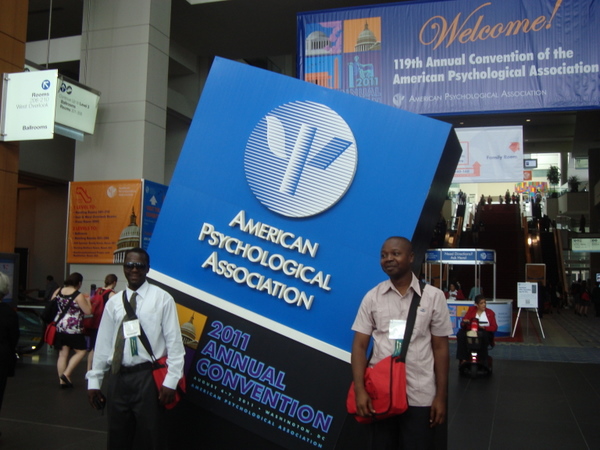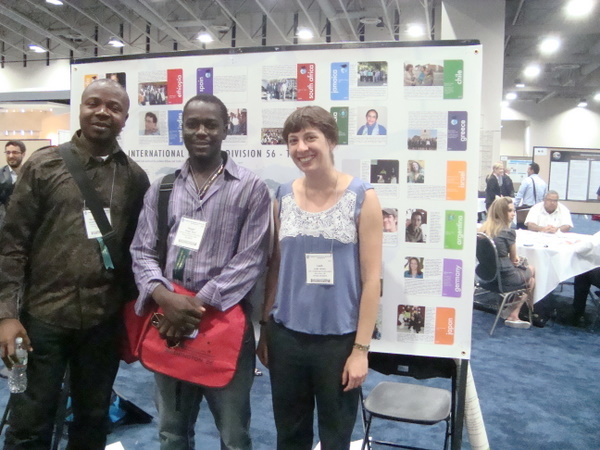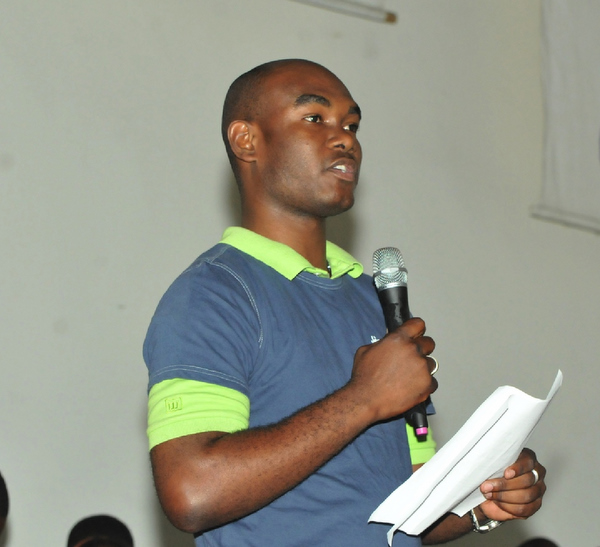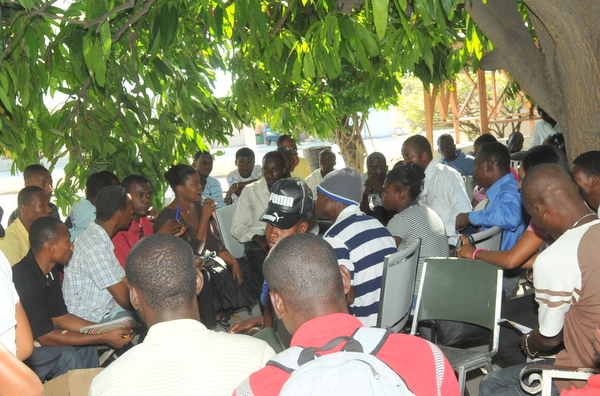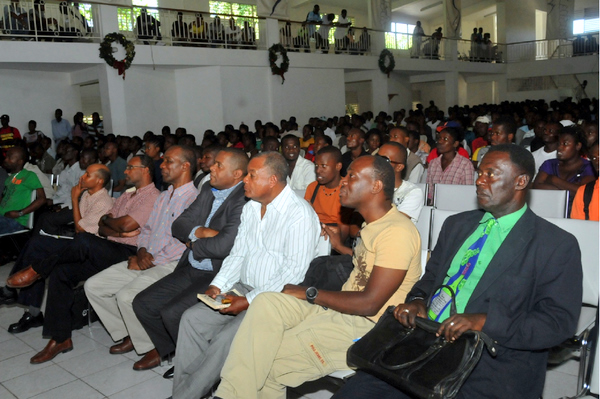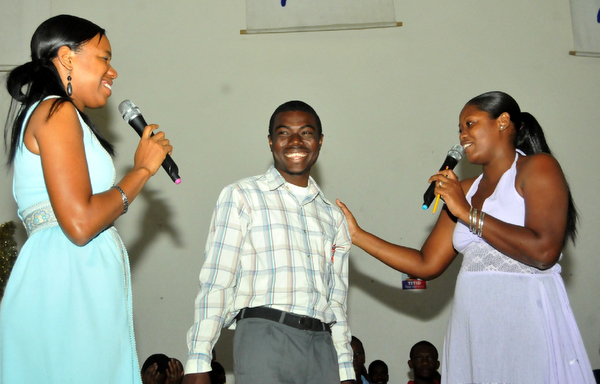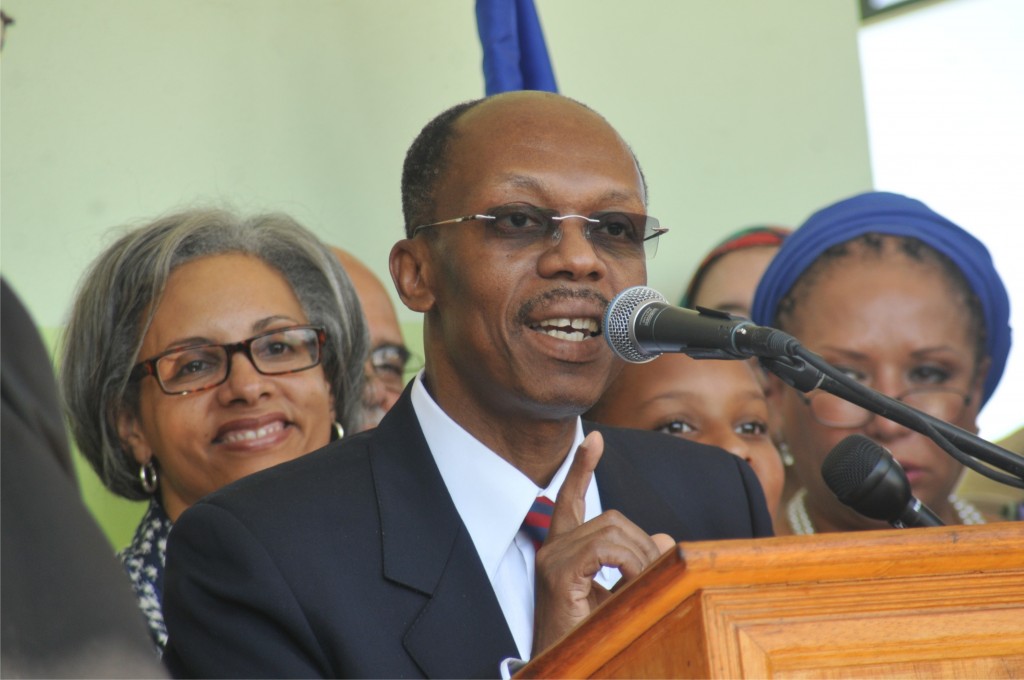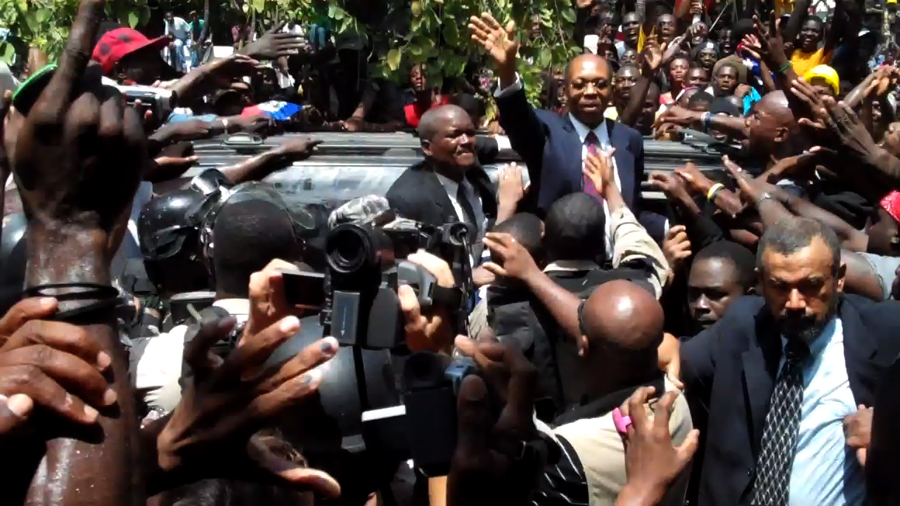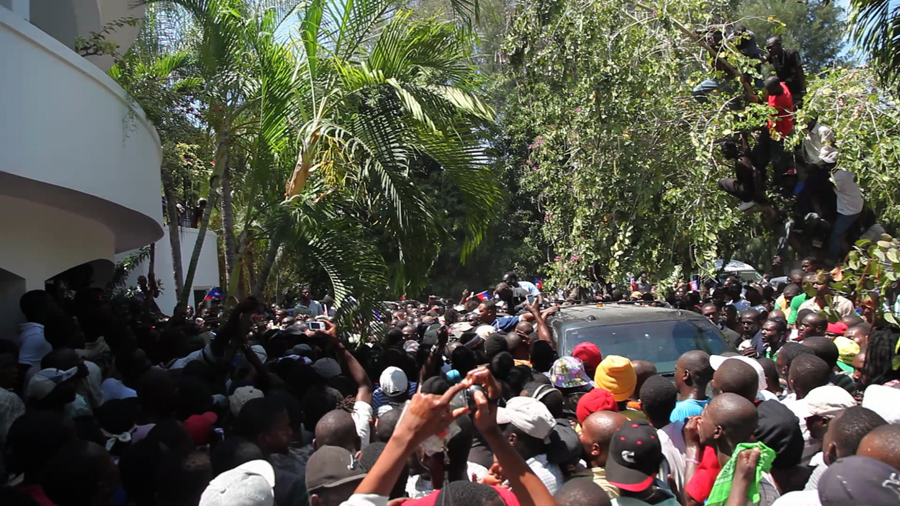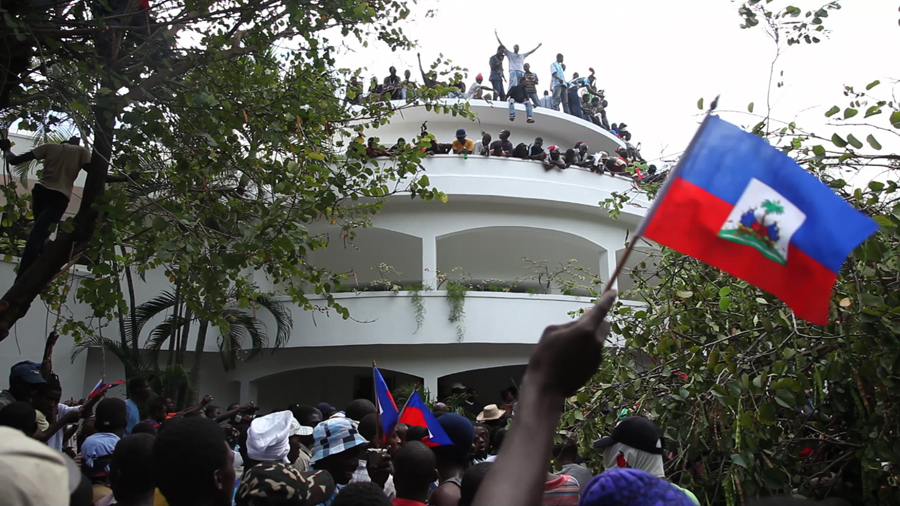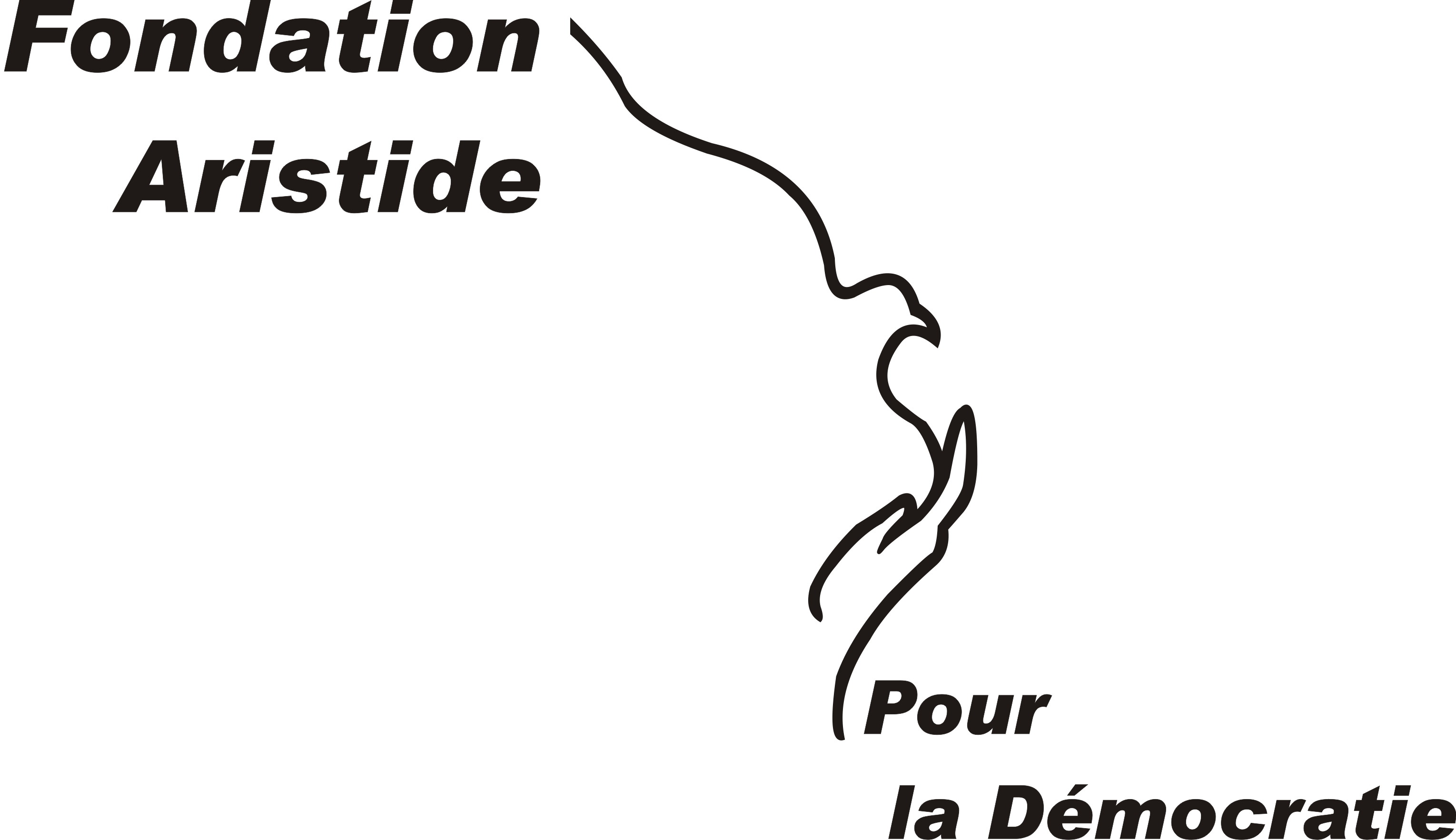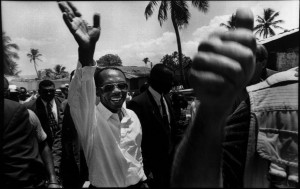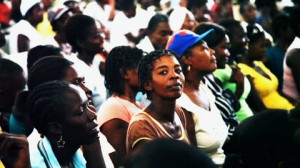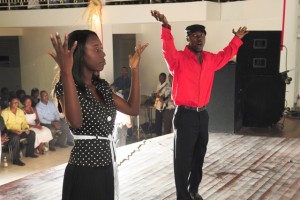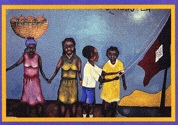Haiti’s Youth Take Center Stage – Youth League Update July 2011
On February 2, 2011 The Aristide Foundation inaugurated a Youth League under the banner: Youth Action, Integration and Cooperation. The purpose of the League is to create a space for debate, intellectual and cultural exchange, and practical training for young people who want to assist in the rebuilding of their country. More than 1,500 people attended the official launch, with 132 representatives coming from each of Haiti’s ten departments. Since February the league has grown by leaps and bounds, holding weekly training seminars and events to mark days of national importance.
On February 23, 2011, 1632 young people were invited to participate in an all day work session to reflect on different areas of future activities including, Psychology, Health, Economics, Communication, Education, Sports, culture, and Justice and Human Rights. After six hours of brainstorming, discussion n and debate each working group presented their conclusions and suggestions for moving forward.
Since February 23, the league has more than doubled in size, mainly through word of mouth. On March 22, another 1700 young people joined, and each week since hundreds of new young people have joined, gathering weekly at the Foundation to listen to speakers on a range of topics. The current membership is over 6,000. Many of these young people are participating in classes organized at the foundation in the following areas: music lessons, driving school, cholera prevention seminars, first aid, and computer courses.
 .
.
In addition to weekly meetings, the league sponsors events to mark important national dates. For International Women’s Day the league sponsored a debate on the active participation of women in the economic and political life of the country. On May 1, (agriculture day in Haiti) agronomists, Dejean and Mésidor presented a conference on environmental degradation and reforestation. Participants received seedlings for planting at the end of the conference. On May 18, rather than having an outside speaker, two Youth League members from the Political Science working group presented the history of the Haitian flag.
On May 28, 2011, a delegation of five teachers traveled to Jacmel to offer a training session for 115 new young people who had enrolled in the league in the South East.
Since June 11, leaders of the Youth League, which includes some of the Cuban-trained doctors who are UniFA graduates, and other young professionals have been meeting every two weeks to harmonize the administrative and technical structures of the league while laying the foundations for coordinating efforts in all ten provinces of Haiti.
On July 15, to mark the birthday of Jean-Bertrand Aristide, and in response to the resurgence of cholera in the country, the Youth League, led by 60 doctors, many of them UniFA graduates, held a huge cholera prevention seminar, with a mass demonstration hand-washing, followed by a free medical clinic for area residents.
Most of those who have joined the Youth League are between 16 and 25 years old. According to Merry Roche, the Foundation’s coordinator of youth activities, young people are flocking to the Foundation for a variety of reasons. The welcoming atmosphere at the Foundation attracts them, as does the possibility of finding a spot in a practical training session. Many also hope that one day they may be able to study at UniFA (the University of the Aristide Foundation, whose Medical School is scheduled to reopen in September). Most of all they are looking for a way to contribute, a vehicle for channeling their energies into building a better country. Foundation staff has been impressed at the dedication of the young people who have formed the League. Most have either completed their Rheto or Philo exams (Exams given during the final two years of high school – reaching this academic level in Haiti is already a major accomplishment.) These are young people with high aspirations. They are creative and cooperative and feel great pride in belonging to the youth league. The Foundation has been overwhelmed by both the turnout and the dedication of these young people and is struggling to create programs to meet their aspirations.
It is already clear that UniFA, once it reopens will be able to accommodate only a handful of these young people. The Foundation is exploring the possibility of expanding vocational training programs beyond the computer school, which already operates at the Foundation. We are looking at possibilities in plumbing, carpentry, electricity, silk-screening, administration, accounting, and perhaps most importantly entrepreneurial mentoring to assist groups of young people in the creation of micro enterprises in the above fields.
If youth is the hope of all countries, the youth league of the Aristide Foundation for Democracy is a profound demonstration of Haiti’s potential. More than half of Haiti’s population is below the age of 25. Each year tens of thousands graduate from high school. Baccalaureate exams are taking place right now across Haiti with more than 130,000 students participating. (If they pass the two-year cycle of exams they are qualified to go to University) Yet, there are only places for a handful of these students at Haiti’s Universities and nearly all of Haiti’s Universities have been hit very hard by the quake. There is massive pent up demand for access to post high school education or training – whether University level or vocational. The energy of Haiti’s young people must become the engine that drives Haiti’s recovery. The question facing both the Foundation, UniFA and really the country as a whole is how do we answer their call?
March 18, 2011 – Aristide Returns Home to Haiti
On March 18, 2011, former President Jean-Bertrand Aristide and his family returned to Haiti after seven years in exile. He was greeted at the airport by tens of thousands of Haitians who then accompanied him to his house in Tabarre. In an outpouring of unrestrainable joy, they made his house their own, as you can see from the photos here.
From the airport just after he landed, Aristide addressed the Haitian people in a speech carried live on Haitian radio. He emphasized the need to move from a politics of exclusion to a one of inclusion of all social classes in the political, economic and social life of the nation. We reprint here the full text of speech as it was delivered primarily in Creole, with section in English, Spanish, Zulu, Swahili, and French.
Speech of Jean-Bertrand Aristide just after his arrival in Port-au-Prince, March 18, 2011
Sè m, Frè m, Onè ! Respè !
Otorite ki nan Leta Peyi d Ayiti,
Reprezantan Gouvènman Afrik Du Sud,
Anbasadè Matu ak Sè nou Matshidiso,
Otorite ki nan òganizasyon
Nasyonal kòm entènasyonal,
Sè m ak Frè m
Ki nan kat kwen peyi a ou aletranje,
Mwen kontan salye n nan lonbraj
Ayeropò Toussaint Louverture.
Sè m, Frè m,
Onè ! Respè !
Onè pou ou !
Respè pou Ayiti !
Ala kontan m kontan fè youn avèk
Minouche, Christine, Michaëlle pou
Salye ou e anbrase ou fratènèlman !
Sè m, Frè m,
Si w te ka poze men w sou kè mwen,
Ou ta santi kijan lap bat pi vit, pi plis
Pou di w : Bravo! Mèsi! Bravo! Mèsi!
Bravo pou kouraj ak entèlijans Pèp la !
Mèsi mil fwa pou akèy san parèy sa a !
Bravo pou tout bèl leson Pèp la deja bay !
Mèsi mil mil fwa pou bèl solèy solidarite
Ki pa te janm kouche dèyè mòn egzil sa a.
A warm welcome to :
Ira Kurzban, Dany Glover, Laura Flynn,
James Early, Selma James, widow of
CLR James, Margaret Prescod, Paul Burke.
Greetings to:
Honorable Deputy Maxine Waters,
Randall and Hezel Robinson,
Brian Cancanon, Claude Ribbe.
Peace to:
John Maxwell and the victims of
the disaster in Japan.
Onè ! Respè !
Onè pou ou e respè pou memwa
300.000 viktim tranbleman tè a !
Respè pou memwa tout moun ki
Viktim kolera ou katastwòf politik.
Men nan la men, bradsou bradsa,
Ann trese yon bèl kouwòn onè respè
Pou Rev Pè Gérard Jean-Juste ak
Tout lòt ewo ki sakrifye lavi yo nan
Defann diyite Ayiti ki malad grav.
Sè m, Frè m,
Pèmèt mwen pataje chalè remèsiman an
Ak anpil zanmi ki pa fèt an Ayiti, men
Ki renmen Pèp Ayisyen ak tout kè yo.
An 2004, gen nan yo ki te al chèche n
Nan peyi Afrik Santral pou akonpaye n
Rive nan peyi Jamayik an natandan
Prezidan Tabo Mbeki te chwazi depeche
Pwòp avyon prezidansyèl Lafrik Di Sid
Pou n te retounen nan bra manman Lafrik.
Yon gwo gwo mèsi pou Prezidan Zuma,
Prezidan Mbeki, Prezidan Mandela ak Tout lòt sè n ak frè n k ap viv nan peyi
Afrik Santral, Jamayik ak Afrik di Sid.
Jan m te di l, anvan n kite Afrik di Sid
Nan lang isiZoulou ak lang Swahili :
(IsiZoulou)
Yize iHaiti ikude naAfrika, asisoze sazikhohlwa
izimpande zamasiko ethu. Ngesikathi zonke
sizobatshela abantwana nezizukulu zethu :
Manikumbule lapho okoko bethu bazalelwe khona.
Niqubele ngokubona lendawo eya eAfrika.
Niqonde ngqo ngalo mgwaqo.
(Swahili)
Umoja ni nguvu,
Utengano ni udaifu.
Mtu ni watu.
